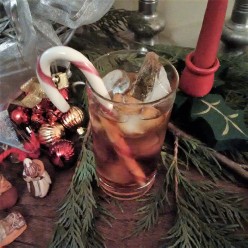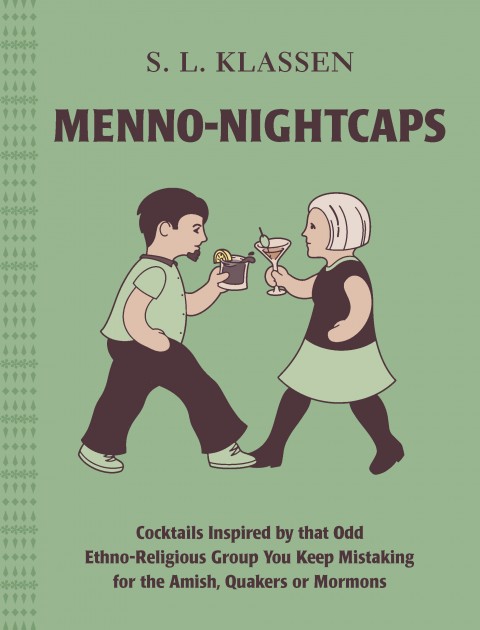 Mennonites naturally had a problem when people started talking about a War on Christmas.
Mennonites naturally had a problem when people started talking about a War on Christmas.
We love Christmas. We love the singing, the Christmas trees, the oddly inappropriate nativity figurines, the pfeffernusse. Sure, some of us are grumpy about aspects of the season. But still. We’re pretty big fans of Christmas.
So, it’s a cause to worry if there’s a war on Christmas.
Because, as Mennonites, we can’t enlist to fight in a war, and we know it is bound to split the community. As so many wars have done in the past.
I am not unrealistic about this. I know that there are probably some Mennonites out there who have already enlisted and those who will say that the peace position is irrelevant for this particular war. I don’t call on us to condemn such Mennonites. I know that true nonresistance is difficult. We need to exercise grace and forgiveness on those among us who succumb to temptation.
And it is so easy to join in on one side or the other, without even really trying. Who among us hasn’t lamented the repeated refrains of Last Christmas and waxed nostalgic for a time when Away in the Manger piped through the public square? Or, conversely, smiled indulgently at hearing “Thriftmas,” a term perfectly designed to lure Mennonites into the hands of the anti-Christmas recruiters.
We are luckier than some. For most of us, the war is fought on foreign soil. As far as I can make out, the Noel battleground rages mostly in shopping malls, coffee shops, packaged food product aisles, and office parties. As none of these are places where Mennonites really feel at home, it is easy for us to feel like the War on Christmas is far from our experience. And fall into error.
To be noncombatants in this war that is fought mostly with words, we will need to watch our language carefully. As it is crucial that we not be identified with either side of the war, we need to refrain from greeting people with either “Merry Christmas” or “Happy Holidays” as either term aligns us with one side or the other. I believe in this case, true nonresistance requires us to offer no spoken greetings at all. I think a smile and nod should be fine.
If we are required to perform alternate service, we may of course do so, as we have in the past. Traditionally, we have done public works, forestry, and medical corps service. I see no problem with any of these unless forestry in some way involves Christmas trees. In the medical corps, we can minister to those poor combatants injured in their service. War is ugly, but foot soldiers are victims of a system bigger than themselves and deserving of care.
We should also offer our thoughts and prayers for those caught in the crossfire. War always has victims. Of particular concern are the innocent refugees who just wanted to live their lives and get through the coldest and darkest days of the year without offending anyone. As people living in the freedom to practice our own weinachts in peace, we will need to open our doors and hearts to these weary masses. And offload on them some of our surplus cookies. Refugees will surely not care whether they are Christmas cookies or everyday gruznikje.
I know some of you reading are thinking that nonresistance isn’t enough. That to be a peace Church, we need to actively work for peace. I have some sympathy for this position and I am disheartened that none of our Church bodies have made statements or passed resolutions about our stance on the War on Christmas. Nor have the other historic peace Churches. Not even the Quakers (who actually have a history of partisanship in earlier wars on Christmas).
That we have failed to be peacemakers can only be attributed to a woeful misalignment of priorities. Some of us, it is true, prefer to listen to those who deny the very existence of a War on Christmas. This despite the knowledge that ignoring the reality of war has never helped us in the past.
And there are certainly opportunities for peace-making. I recently learned that in 2015, the Ugly Christmas Sweater party was declared a demilitarized zone. There, apparently, both sides of the war come together in a celebration of tacky nostalgia.
Needless to say, the Ugly Christmas Sweater party is not a place where Mennonites have been known to be active in peace-making witness. Which is a shame, really. I’m pretty sure we could have turned our formidable quilt-making skills into the production of epic Christmas sweaters adorned with appliqued cutesy nativity scenes had we only known that this would contribute to peace on earth. But, unless the Christian Peacemaker Teams has been throwing Ugly Christmas Sweater parties unbeknownst to me, I suspect that most of us have missed this opportunity for peacemaking by mistakenly seeing the events as a mockery of the type of clothes that many of us wear unironically.
Or maybe Ugly Christmas Sweaters just seemed too “fancy.”
Without our participation in a peace process, It is not surprising that the war has raged for over a decade and signs of peace are fleeting. Recent polls suggest that on the US front, which has always been the most active, civilians are becoming war-weary. Fewer figures of Mary and Joseph adorn courthouse lawns now and fewer people care, which appears to be a win for the Allies against Christmas; but the vast majority of Americans still celebrate Christmas in one way or another, which might be considered a win for the axis of Christmas (as had earlier been predicted).
But really. We all know that no one wins in war.
So let’s not quibble about such things as the true meaning of Christmas, the separation of Church and state, and our different understandings of mistletoe. Or Jesus.
Let’s just have a glass of cheer, a nod and a smile.
The Ugly Christmas Cocktail
This cocktail combines the tradition of chocolate in a Christmas stocking (or plate, if you’re that kind of Mennonite) with the heft of rye whiskey to bolster your resolve in standing up for peace in this time of war.
whiskey to bolster your resolve in standing up for peace in this time of war.
1 1/2 oz creme de cacao
1 oz Canadian rye whiskey
Shake. Serve on ice and garnish with a candy cane and any other nostalgic kitsch that you can find. If tackiness is the stuff of peace, drink on.


